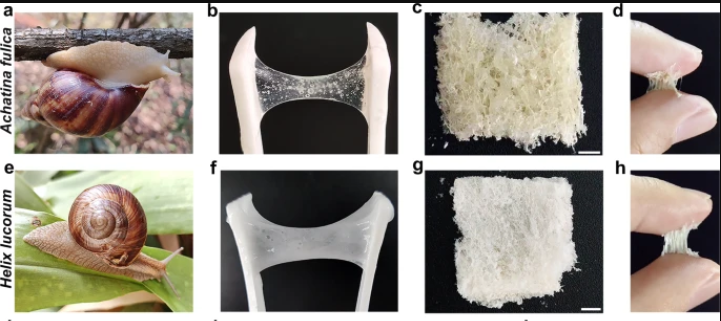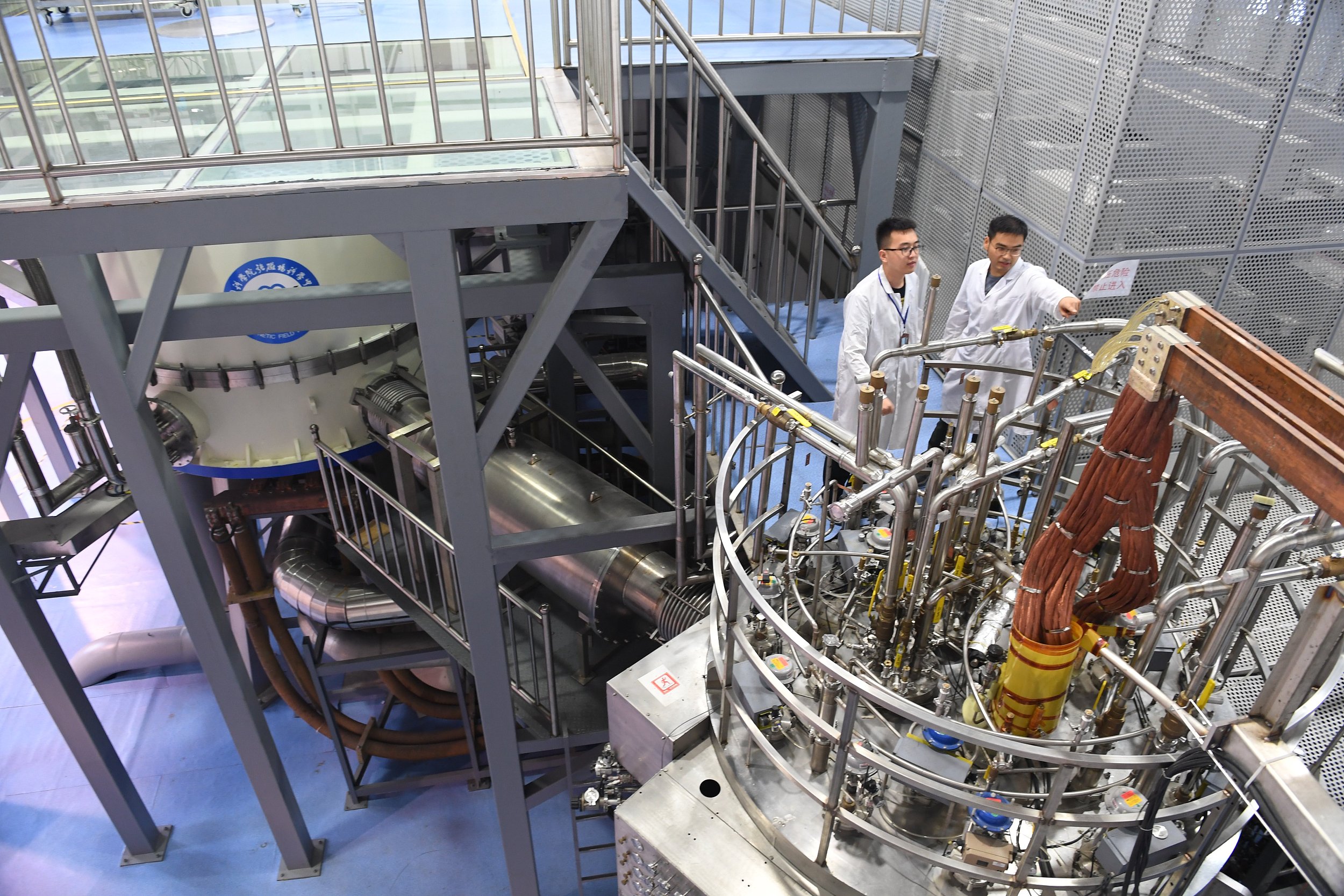Snail Mucus Gel Helps Wound Repair
The features of how snail mucus can be used as biological adhesive. (PHOTO: NATURE)
By Staff Reporters
Wound management remains a challenge in clinics because of the high incidents of traumatic injuries and refractory chronic wounds.
Though surgical sutures and staples are gold standards for the reconnection of injured tissues and closure of wounds, they may cause pain, surgical site infection, and skin scarring.
Alternative treatments include tissue adhesives, such as fibrin glue and PEG-based adhesives, which are relatively effective and painless. However, the currently available tissue adhesives still lack wet adhesion capacity and/or bio-compatibility.
The discovery of natural adhesion phenomena and mechanisms has advanced the development of a new generation of tissue adhesives in recent decades.
Researchers from Kunming Institute of Botany (KIB), Chinese Academy of Sciences, developed a natural biological adhesive from snail mucus gel, which is made up of a network of positively charged protein and polyanionic glycosaminoglycan.
The malleable bulk adhesive matrix can adhere to wet tissue through multiple interactions. The bio-material exhibits excellent haemostatic activity, bio-compatibility and biodegradability, and it is effective in accelerating the healing of full-thickness skin wounds in both normal and diabetic male rats.
Further mechanistic study shows it effectively promotes the polarization of macrophages towards the anti-inflammatory phenotype, alleviates inflammation in chronic wounds, and significantly improves epithelial regeneration and angiogenesis.
Its abundant heparin-like glycosaminoglycan component is the main active ingredient. These findings provide theoretical and material insights into bio-inspired tissue adhesives and bio-engineered scaffold designs.



